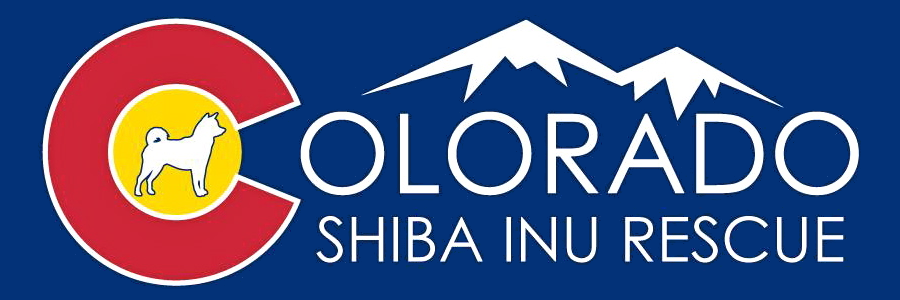TRAINING YOUR SHIBA INU
If you are having behavioral problems or trouble training your Shiba, there are many skilled training professionals and training centers in your area that should be able to help you.
Although it is important to catch problems early, the benefit of dogs is that they live in the “now”, not the “yesterday”, and you can retrain and rehabilitate a dog of any age.
It is best if you find a training center that is familiar working with primitive dog breeds and uses positive reinforcement training methods. Methods such as alpha rolling (putting the dog on its side or back) or corrective collars such as choke, prong or shock collars may seem initially the “quick fix” to many problems but they can have long term negative effects on your dog’s behavior.
Find an accredited trainer or certified behaviorist that does not use these aversive methods. Besides, no one gets a dog because they are looking forward to punishing it–at least, I REALLY hope they don’t!
Colorado Shiba Inu Rescue’s Stance on Training
We don’t bribe, we reward.
We are positive but not permissive.
We pay attention to what our dogs like and dislike and use this information to control rewards and punishments in order to get the behavior we want from our dogs.
We use food, play, toys and real life rewards to train and maintain behaviors.
We understand that our dog’s emotional well being is important. We don’t get the behavior we want without taking into account what the cost may be on the other end of the leash.
We use the science of learning and our larger cerebral cortex to solve behavior issues understanding the many positive options available.
We make every effort to eliminate as much positive punishment (adding something the dog doesn’t like in order to suppress a behavior) as possible. We are not perfect, we are trying every day to come up with creative solutions using positive reinforcement and the other quandrents of operant conditioning if necessary. We do this because we understand the possibility of behavior fallout when using positive punishment and the risk seems too high.
We train without pain and intimidation.
We set our dogs up to succeed so that we can reward.
We don’t command our dogs. We request compliance and make it worth their while.
But most of all WE LOVE OUR DOGS!
A great video clip on what dog training SHOULD BE for EVERY dog by the wonderful Dr. Ian Dunbar, Founder of the Association of Pet Dog Trainers.

